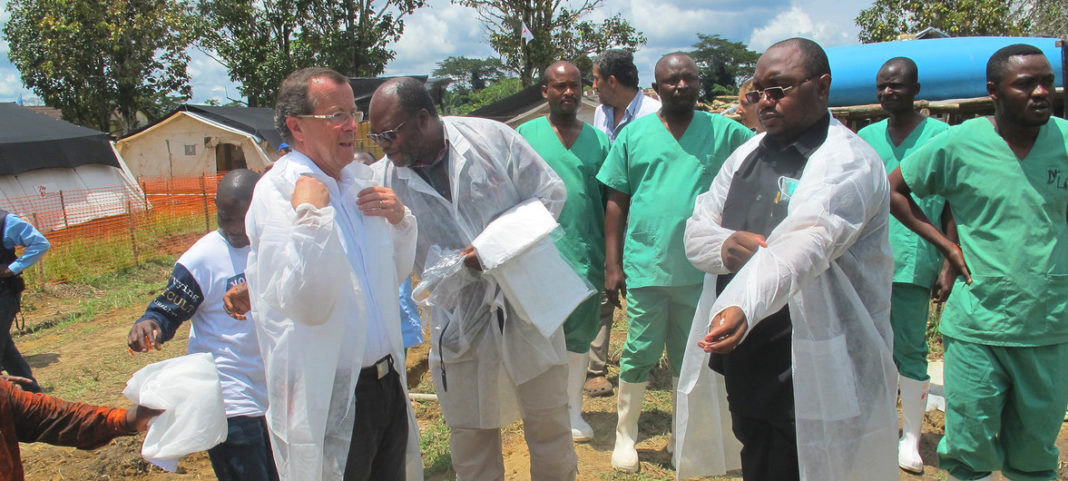The recent outbreak of the Ebora Virus Disease (EVD) in the Democratic Republic of Congo (DRC) has put five of the six East African Community (EAC) Partner States at risk of catching the infectious disease, according to the World Health Organisation (WHO).
In its “Regional Strategic EVD Readiness Preparedness Plan”, WHO ranked Burundi, Rwanda, South Sudan, Tanzania and Uganda as priority countries that are at risk. The ratings are determined based on the countries’ proximity to DRC and the capacity of their health systems to cope with an Ebola outbreak. EAC Partner States share borders with the DRC, maintain direct flights and close trade relations and there is high border traffic.
“These factors have above have caused the EAC to be on high alert, and Partner States are implementing extensive readiness measures. To date, no cases of Ebola have been detected in the EAC region,” reads part of the press statement from the EAC Secretariat.
The statement says that: “The EAC region is taking action to prevent future outbreaks of infectious diseases by strengthening its response capacity, supporting Partner States in their pandemic preparedness measures and preparing to test its readiness in practice. These efforts are in line with a new World Health Organization (WHO) guidance document.”
According to the statement, EAC preventive activities cover key technical areas listed in WHO’s new EVD Readiness Plan, such as multi-sectoral coordination, risk communications, social mobilisation and community engagement.
The EAC also has a regional contingency plan in place that reflects the multi-disciplinary One Health disease management approach and is currently developing Standard Operating Procedures (SOPs) to translate the plan into action, the statement says.
“The plan considers important lessons learned from East African experts who fought Ebola in West Africa. One of these lessons is that risk and crisis communication together with community engagement was a “game changer” in the response. Consequently, the EAC Secretariat together with the Partner States is currently developing a regional risk and crisis communication strategy and related SOPs,” it says.
However, the statement says standard operating procedures will also be developed as a first step towards establishing a regional pool of rapidly deployable experts that build on the experience gathered in West Africa. “The pool is expected to complement national rapid response teams during future outbreaks. A core team of multi-disciplinary experts will receive training in risk and crisis communication, and another core team will be trained as regional trainers in rapid risk assessment,” it says.
To test the successful implementation of the mentioned strategies, the functionality of the SOPs and the region’s improved capacities, the EAC together with the Partner States is preparing to conduct cross-border simulation exercises. They will also offer a unique opportunity to reveal the gaps that still need to be closed in joint efforts.
The Deutsche Gesellschaft für Internationale Zusammenarbeit (GIZ) GmbH through the “Support to Pandemic Preparedness in the EAC Region” project amongst other development partners supports the EAC Secretariat in its endeavour to strengthen its advisory and coordinating role for the Partner States in pandemic preparedness.








